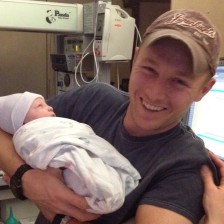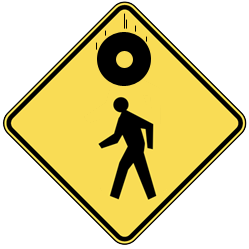About this time Jesus was informed that Pilate had murdered some people from Galilee as they were offering sacrifices at the Temple. ‘Do you think those Galileans were worse sinners than all the people from Galilee?‘ Jesus asked. ‘Is that why they suffered? Not at all! And you will perish, too unless you repent of your sins and turn to God. And what about the eighteen people who died when the tower in Siloam fell on them? Were they the worst sinners in Jeruselem? No, and I tell you again that unless you repent, you will perish too.” -Jesus, Luke 13:1-5
I read that passage this morning, and couldn’t remember anyone ever teaching on it. It really struck me for some reason and I couldn’t put my head around it.
Wesley’s Explanatory Notes on the passage help shed some light. The passage, while addressing suffering and justice, are actually a “type” or symbolism for what was about to come. Wesley draws out the conclusion that the Galileans killed while offering sacrifices at the Temple are a foretelling of Christ, and soon his disciples as well, being killed while celebrating the passover.
He goes on to share that the eighteen people killed when the tower fell on them, is likened to the 600,000 people who were murdered, shipped off to the gladiatorial games and Roman mines when the city of Jerusalem was besieged and the temple was destroyed in 70 A.D.
What does this mean?
Now, I hear that and, maybe because I’m slow at the uptake, am still unsure of how to apply this. What is the take-away?
Some say that every sickness, downturn in the economy, personal or national attack is a reflection of our due penalty for sin. Those people who say this will stub their toe and figure that it is because of their disobedience. I disagree.
While there are times when God clearly administers justice, even to the people he loves (Read just about anything in the old testament and you will see the interaction between the LORD and Israel demonstrates this over and over), there are also certain aspects, universal laws, that God established which we encounter; Some as a result of the fall, and some as part of being finite humans.

To further argue this case, I am reminded of a Jewish law that establishes certain cities of refuge for murderers to run to when they unintentionally killed someone – the example given of a worker who accidentally drops a millstone on someone’s head. To protect the clumsy worker from the angry family of the unfortunate millstone victim, Mr. Butterfingers would be sent to the town of refuge until an allotted amount of time had passed. God clearly understands that, although the consequence (death) is serious, it was clearly an accident and not a spiritual exercise in justice because the dead guy had it coming to him.
Basically, when it comes down to it, I don’t believe that every action and reaction is spiritual.
That said, I think Jesus is trying to get across a point here. There are physical repercussions. There are spiritual repercussions. You must discern which are which. But unlike the physical, which we tend to give more importance, the spiritual always supersedes the temporal and requires our critical attention.
Take a look at the healings Jesus administered. He always took care of the physical body, but so often it was only as evidence for the spiritual healing which had already occurred. Jesus was and is ultimately concerned about the spiritual.
In our eyes, the physical takes precedence over the spiritual because it’s what we touch, taste, hear and see.
But because we haven’t learned to see with spiritual eyes, we are limited in our understanding and unable to grasp the dire need of the internal and eternal. Instead we devote all our time and energy to the external, temporal and ultimately futile.
Not to steer anyone back to the days of self-flagellating monks who believed that anything physical was bad. But I do hope to draw out of this passage the reality that the spiritual is king to the physical.
A word on suffering
My last point that I want to make is in regards to suffering in particular. Without an proper understanding of the spiritual, we will see the pain and turmoil of this present age and say, “Where is God? What kind of loving father could let his children suffer?”
But I encourage you to seek the heart of the Father. Look at how Christ mourns over Lazereth, even before Christ raises him from the grave (John 11). Look at the LORD’s long-suffering and enduring grace shown to the Israelites throughout the old testament.
There are times of pain and very often there are no obvious reasons for them. Especially when we are in the midst of the situation, it is virtually impossible to see and understand “why”. Our prerogative is to mourn with those who mourn, to rejoice with those who rejoice and ultimately seek to give God the glory.
God knows your pain before you know it, does not leave you when you’re in it and does not forget about it or get tired of you, even when others have.



 When you look at our churches and the people that attend, who do you see? What types of people?
When you look at our churches and the people that attend, who do you see? What types of people?